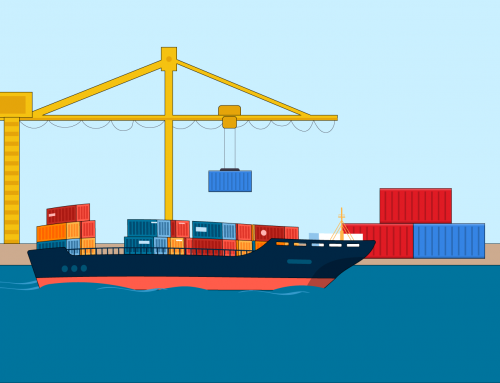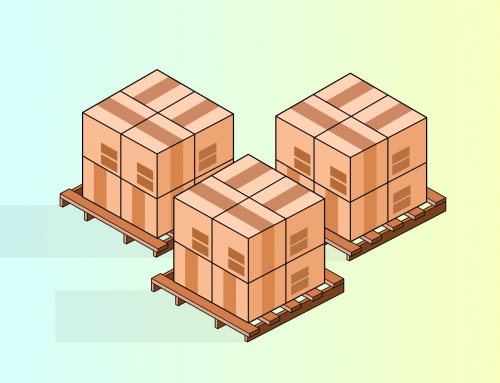Overview: FOB Incoterms Explained.
Hi, I’m Geoff Runcie and I’m back with the latest episode of FOB Incoterms the International Trade Series featuring renowned global trade expert Murdo Beaton and Abdul Mann, creator of the cloud-based export solution EdgeCTP.
If you’re new to this series, then welcome, I hope you find it useful and that you’re sufficiently inspired to go global.
In this session, Incoterms explained, we’ll be breaking down the eleven Incoterms, explaining what they mean, their application, and the benefits of using them. There’ll be eleven episodes in total so make sure to subscribe to our blog if you don’t want to miss any. Alternatively, feel free to drop me an email on Support or visit our blog.

Container Port Sip
Geoff:
Today we’ll be discussing FOB Incoterms, including how and when to use it. So Murdo what is FOB delivery terms?
Murdo:
The FOB Incoterms stands for Free On Board. That means free onboard the main carrying vessel. This again is a sea and inland waterway transport Incoterm. Very, very common term, probably one of the most regularly used terms in international trade. Sometimes, maybe even quite frequently it is misused. We frequently get contracts that show themselves as FOB airport. Now, this is not a term to be used for aviation transportation. It is a marine term and should only be used for marine and waterway transport. For the term, the exporter is obliged to bring the subject goods to the vessel which has been appointed by the buyer, at a port which has also been appointed by the buyer, at a time which has also been appointed by the buyer and loads the subject goods onto such a vessel. This is the exporter’s responsibility. The exportermwindowsproductkey.com is expected to clear them through the dispatching country’s customs and load them on board the vessel that has been appointed by the buyer.
Abdul:
It’s very similar to FAS incoterms but takes one step further.
Murdo:
Takes one step further and this time loads them on board the vessel. Now by loading them on board the vessel does that mean that the goods have to be securely loaded on board the vessel in terms of, they have to be safely positioned on the vessel, safely secured on the vessel? The obligation of the seller is simply to place them on board the vessel to allow the vessel’s crew to safely secure them.
Abdul:
So as long as it touches down on the vessel.
Murdo:
As long as it is actually positioned in the whole of the vessel that is what is required.
Abdul:
That’s when the responsibility of the seller terminates and the responsibility of the buyer takes over.
(Scroll down to continue….)
Murdo:
Yes indeed.
Abdul:
Is there a stipulation in FOB Incoterms as to where you’re going to store the items on board the vessel?
can you buy baclofen Canada? apcalis sx Ajanta pharma 20 mg in us. one test uses a single-stranded DNA probe to detect gonococcal ribosomal RNA, Murdo:
That is a matter that is going to be determined by the vessel itself. The vessel will normally have a First Mate on board and the First Mate is usually responsible for ensuring the cargo that is loaded onto the vessel is properly positioned on the vessel and properly secured on the vessel. A voyage stowage plan will be produced where all cargos that are intended to be loaded will have already been notified in advance and it will be decided by the First Mate and his supporting crew as to where in actual fact each item of cargo is going to be positioned onboard the vessel. They will load the cargos onto the vessel in that sequence. Now the vessel has certain responsibilities in terms of making sure that they don’t load on deck cargos that are subject to climatic conditions. This is why a lot of exporters would probably, on their instructions for shipping the goods, clearly indicate Not to be shipped on deck.
Abdul:
So that would be part of what? The Export Cargo Shipping Instructions or something?
Murdo:
Yes, the Export Cargo Shipping instruction and the exporter is quite an at liberty to direct the ship down that route. That doesn’t mean to say that the exporter in any way is suggesting that the vessel’s First Mate or Captain don’t know what they’re doing, they’re just simply pointing out not to be shipped on deck.
Abdul:
Right, and then in terms of insurance for FOB Incoterms, the insurance is to which point? In FAS delivery terms we saw that the insurance was to the point of bringing the goods to the key port.
Murdo:
Yes, the insurance here and the risk would be for the exporter up to such times as the goods are loaded into the hold of the vessel and the risk from that point passes onto the buyer, as does any obligations insure from that point onwards to the ultimate destination.
Abdul:
Could the buyer say We’re going to use FOB but I’d like you (the seller) please to insure the goods all the way to my door could that be done?
Murdo:
Oh yes, absolutely. As far as the exporter is concerned the contract they have with the buyer is FOB Incoterms. That is the contract, that’s how it will be and that’s how it will remain. If it’s clearly stipulated that it’s FOB as per Incoterms then there is no disputing that both parties and anyone else looking at the contract would see these are or that is the extent of the obligations of both parties. If one of the parties then vis a vie the buyer, wishes to ask the parties to extend additional services over and above what the FOB Incoterm is suggesting then of course, if the other party is quite willing they are totally able to do that but it must be clearly understood that in providing these additional services beyond FOB as per Incoterms the exporter is actually doing that as an agent on behalf of the buyer. So that if there is a default to be found on such additional services the buyer cannot put the FOB contract into jeopardy because these additional services are totally outside the provision of the FOB transaction.
Abdul:
So if FOB was for ships and marine transport, I want FOB Incoterms but I want to do it by air, what the equivalent Incoterm I could use then?
Murdo:
The equivalent Incoterm for air and the most suitable one to mirror the FOB position would be Free Carrier, FCA. That would be the most appropriate one so if you were sending anything out of the UK instead of saying FOB Heathrow you would say FCA Heathrow. Now that would mean that the exporter would be expected to deliver the subject goods to the carrier at Heathrow.
Geoff:
I hope you enjoyed this audio. If you’d like more information on international trade go to www.edgedocs.com. All material in this audio is copyrighted and all reproduction rights reserved by Morgan Goodwin Ltd, thank you.





